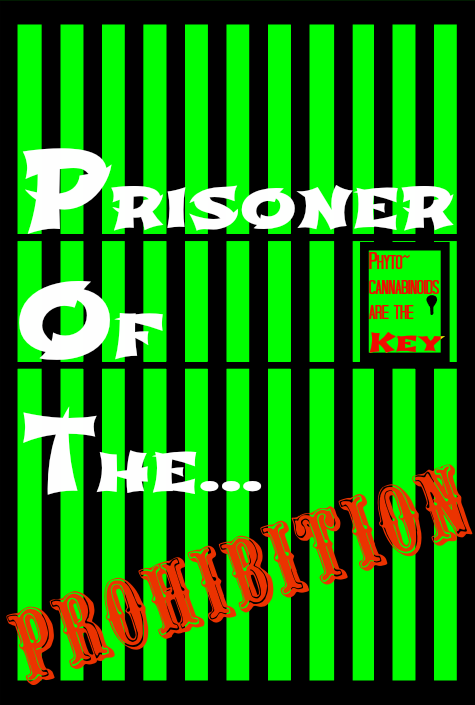 Repeated low-dose administration of the monoacylglycerol lipase inhibitor JZL184 retainscannabinoid receptor type 1-mediated antinociceptive and gastroprotective effects.
Repeated low-dose administration of the monoacylglycerol lipase inhibitor JZL184 retainscannabinoid receptor type 1-mediated antinociceptive and gastroprotective effects.
Source
Department of Psychology, West Virginia University, Morgantown, West Virginia, USA.
Abstract
The monoacylglycerol lipase (MAGL) inhibitor 4-nitrophenyl 4-(dibenzo[d][1,3]dioxol-5-yl(hydroxy)methyl)piperidine-1-carboxylate (JZL184) produces antinociceptive and anti-inflammatory effects. However, repeated administration of high-dose JZL184 (40 mg/kg) causes dependence, antinociceptive tolerance, cross-tolerance to the pharmacological effects of cannabinoid receptor agonists, and cannabinoid receptor type 1 (CB1) downregulation and desensitization. This functional CB1 receptor tolerance poses a hurdle in the development of MAGL inhibitors for therapeutic use. Consequently, the present study tested whether repeated administration of low-dose JZL184 maintains its antinociceptive actions in the chronic constriction injury of the sciatic nerve neuropathic pain model and protective effects in a model of nonsteroidal anti-inflammatory drug-induced gastric hemorrhages. Mice given daily injections of high-dose JZL184 (≥16 mg/kg) for 6 days displayed decreased CB1 receptor density and function in the brain, as assessed in [(3)H]SR141716A binding and CP55,940 [(-)-cis-3-[2-hydroxy-4-(1,1-dimethylheptyl)phenyl]-trans-4-(3-hydroxypropyl) cyclohexanol]-stimulated guanosine 5′-O-(3-[(35)S]thio)triphosphate binding assays, respectively. In contrast, normal CB1 receptor expression and function were maintained following repeated administration of low-dose JZL184 (≤8 mg/kg). Likewise, the antinociceptive and gastroprotective effects of high-dose JZL184 underwent tolerance following repeated administration, but these effects were maintained following repeated low-dose JZL184 treatment. Consistent with these observations, repeated high-dose JZL184, but not repeated low-dose JZL184, elicited cross-tolerance to the common pharmacological effects of Δ(9)-tetrahydrocannabinol. This same pattern of effects was found in a rimonabant [(5-(4-chlorophenyl)-1-(2,4-dichloro-phenyl)-4-methyl-N-(piperidin-1-yl)-1H-pyrazole-3-carboxamide)]-precipitated withdrawal model of cannabinoid dependence. Taken together, these results indicate that prolonged, partial MAGL inhibition maintains potentially beneficial antinociceptive and anti-inflammatory effects, without producing functional CB1 receptor tachyphylaxis/tolerance or cannabinoid dependence.
- PMID:
23412396
[PubMed – indexed for MEDLINE] PMCID:
PMC3657109 [Available on 2014/6/1]
Publication Types, MeSH Terms, Substances, Grant Support
Publication Types
MeSH Terms
- Analgesics/pharmacology*
- Animals
- Anti-Inflammatory Agents, Non-Steroidal
- Anti-Ulcer Agents/pharmacology*
- Arachidonic Acids/metabolism
- Benzodioxoles/pharmacology*
- Brain Chemistry/drug effects
- Cyclohexanols/pharmacology
- Diclofenac
- Dose-Response Relationship, Drug
- Drug Tolerance
- Endocannabinoids/metabolism
- Glycerides/metabolism
- Guanosine 5′-O-(3-Thiotriphosphate)/pharmacology
- Male
- Mice
- Mice, Inbred C57BL
- Monoacylglycerol Lipases/antagonists & inhibitors*
- Pain Measurement/drug effects
- Piperidines/pharmacology*
- Pyrazoles/pharmacology
- Receptor, Cannabinoid, CB1/biosynthesis
- Receptor, Cannabinoid, CB1/drug effects*
- Stomach Ulcer/chemically induced
- Stomach Ulcer/prevention & control
- Substance Withdrawal Syndrome/psychology
- Substance-Related Disorders/psychology
- Tetrahydrocannabinol/pharmacology
Substances
- Analgesics
- Anti-Inflammatory Agents, Non-Steroidal
- Anti-Ulcer Agents
- Arachidonic Acids
- Benzodioxoles
- Cyclohexanols
- Endocannabinoids
- Glycerides
- JZL 184
- Piperidines
- Pyrazoles
- Receptor, Cannabinoid, CB1
- Diclofenac
- rimonabant
- Tetrahydrocannabinol
- Guanosine 5′-O-(3-Thiotriphosphate)
- 2-arachidonylglycerol
- 3-(2-hydroxy-4-(1,1-dimethylheptyl)phenyl)-4-(3-hydroxypropyl)cyclohexanol
- Monoacylglycerol Lipases
Grant Support
LinkOut – more resources
Full Text Sources
Other Literature Sources
Molecular Biology Databases

